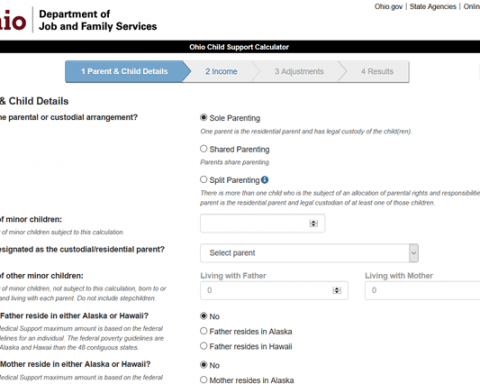Sleep plays a crucial role in a baby’s mental and physical development. According to research, “the importance of sleep and preservation of sleep cycles in infants has been known for more than 40 years…Parents are playing an increasingly important role in supporting early development.” Parenting on purpose ensures that the baby develops sound habits early on so that they stick later in life.
Unlike adults, babies need twice as much sleep in their initial years to enable their bodies to grow as well as recharge themselves. Any interruptions to the sleep cycle have a substantial impact on their energy, mood, and development.
Sleep not only helps the baby grow physically, but it also helps strengthen and develop the baby’s central nervous system. A good night’s sleep also ensures that the baby wakes up in a good mood and with a good appetite. It also maintains mental and physical alertness, immunity, interactive abilities, and behavioral compliance.
Sleep and sleep cycles are essential for the development of the neurosensory and motor systems in the fetus and neonate. They are essential for the maintenance of brain plasticity over the lifetime of the individual —Researchers at University of South Florida
Sleep Modes and Their Impact on the Body and the Brain
Babies’ sleep patterns become distinguishable even while they are still in the womb. Parenting on purpose helps the parents set forth and follow these natural rhythms. According to research, “The origin of sleep and circadian rhythms development is found during the fetal period. Both quiet (NREM) and active (REM) sleep are distinguishable during the last 10 weeks of gestation….Although maternally influenced, circadian rhythm antenatally becomes ultradian at birth.”
Just like adults, babies experience two types of sleep modes. One is active sleep, or the rapid eye movement (REM) mode, during which the baby twitches, smiles, flutters the eyes, and rolls around. This mode involves a higher degree of brain activity and alertness, and it plays a key role in the development of a baby’s mind.
[youtube https://www.youtube.com/watch?v=mNdRoeVthVM?rel=0&showinfo=0]
Baby in Rapid Eye Movement (REM) Sleep
The second mode of sleep is deeper. It is called the deep sleep mode, or the non-rapid eye movement (NREM) mode. In this mode, connections with newly learned content are established, and memories are formed. Thus, in the NREM state, development takes place in the deeper areas of the brain. The hippocampus in the brain regulates memory, and the hypothalamus is responsible for regulating deep sleep.
What Happens When My Baby Doesn’t Get Enough Sleep?
There are a lot of reasons why a baby may not be able to sleep, including hunger, wetness, physical pain, noisy surroundings, fluctuations in the surrounding temperature, and overstimulation. When the baby doesn’t get enough sleep, the baby’s physical growth as well as mental and emotional development are affected. Lack of sleep lowers the baby’s attention span, delays learning, and creates other types of behavioral issues later on. Parenting on purpose can prevent these issues by creating sounder sleeping habits.
How Can I Ensure That My Baby Gets Enough Sleep?
Here are some ways parents can ensure that their baby gets the sleep it needs to thrive physically and mentally:
- Read the signs. If babies stay awake beyond their bedtime, they get overstimulated and are less likely to fall sleep. So, as soon as the baby shows signs of tiredness, start getting ready for bed. Some signs include yawning and sucking of the thumb. The baby may also show diminished interest in its surrounding or stare into space.
- Develop consistency. It’s better to put a baby to bed at a specific time every night so that its mind and body develop an internal schedule for sleep. The earlier parents start sleep training their baby, the sooner it will develop sound sleeping habits.
- Build familiarity. Build a cozy and familiar sleeping environment for the baby by dressing the baby in specific nightclothes, lowering the lights, massaging baby’s body, giving the baby a familiar blanket or toy, and singing the baby a lullaby.
- Get some sun. Make sure the baby gets fresh air and sunshine daily to activate melatonin production, balance the circadian rhythms in the body, and help the baby sleep sounder at night. Sun exposure also produces vitamin D, which strengthens the baby’s nervous system.
- Feed the baby properly. Babies either wake up or stay awake because their tiny tummies are empty. Thus, it is a good idea to feed the baby right before bed and to feed the baby again as needed before he or she wakes up crying and hungry in the middle of the night. An alarm or timer can help parents wake up periodically at night to feed the baby before the baby starts to cry. Once a baby is ready for solids, offering a few tablespoons of baby food can keep the baby’s tummy fuller for a longer period and thus help the baby sleep through the night.
- Prioritize nighttime rest. Most babies develop a habit of sleeping during the day and staying awake during the night, and the parents inadvertently end up following the same cycle. So make a deliberate attempt to help the baby sleep less during the daytime so that the baby is tired enough to sleep at least a few hours during the night.
Sleep problems are pretty common in babies, but parenting on purpose and effective strategies can help overcome them. Good sleeping habits can last a lifetime. A baby who learns to sleep properly during the night through a proper sleep regimen is more likely to continue this positive habit later on.
References
- Mirmiran, Majid, Yolanda GH Maas, and Ronald L. Ariagno. “Development of Fetal and Neonatal Sleep and Circadian Rhythms.” Sleep Medicine Reviews 7, no. 4 (2003): 321–334. Retrieved from https://www.sciencedirect.com
- Graven, Stanley N., and Joy V. Browne. “Sleep and Brain Development: The Critical Role of Sleep in Fetal and Early Neonatal Brain Development.” Newborn and Infant Nursing Reviews 8, no. 4 (2008): 173–179. Retrieved from https://www.sciencedirect.com













